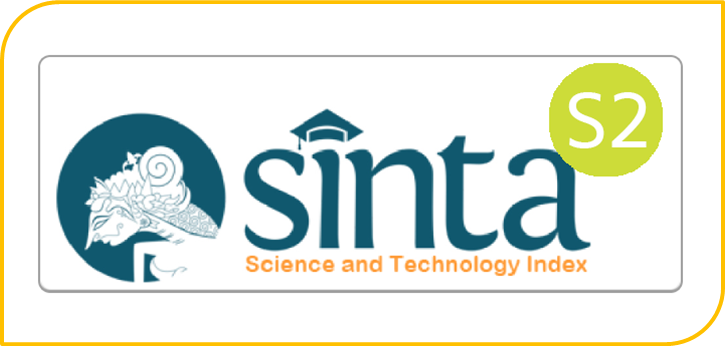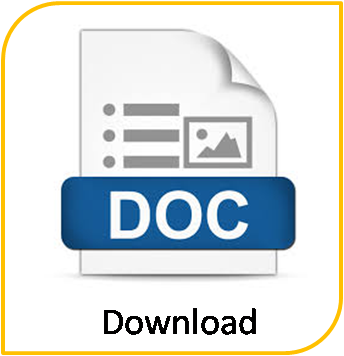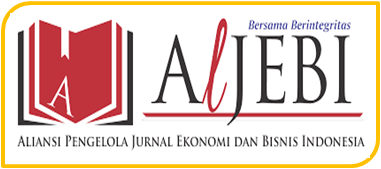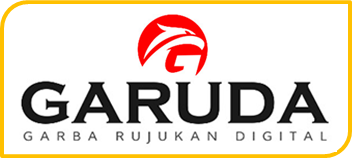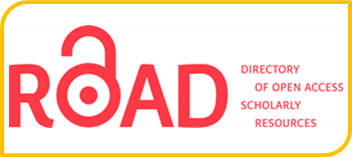ZAKAT MANAGEMENT IN THE COVID-19 PANDEMIC ERA
Abstract
The study aims is to show how the zakat management in the covid-19 pandemic era. Amil zakat institutions need to make innovation in term of zakat management, both collection and distribution of zakat itself, one of them is related to the digitization of zakat management. This research analysed with a qualitative approach. The results showed that East Kalimantan LAZ DPU had innovated in terms of zakat management by utilizing digital technology both in the collection and distribution of ZIS funds. In the distribution of ZIS funds, it was directed at handling the impact of covid-19 for Mustahik to help Mustahik economic difficulties through regular programs in the field of humanity, da'wah, health, economy, and education. In addition, some special programs were also added, namely helping medical personnel by providing personal protective equipment, the best frontline nutrition program, providing basic food supply for the dhuafa, and empowering students and teachers during this pandemic. This research show that LAZ do an action in humanity specially in pandemic era
Keywords
Full Text:
PDFReferences
Almeida, F., & Santos, J. D. (2020). The effects of COVID-19 on job security and unemployment in Portugal. International Journal of Sociology and Social Policy, 40(9–10), 995–1003. https://doi.org/10.1108/IJSSP-07-2020-0291
Amanda, G. R., Malihah, F., Indriyastuti, S., Khumairah, N., Tulasmi, T., & Mukti, T. (2021). Pendayagunaan Zakat Pada Masa Pandemi Covid-19. Jurnal Ilmiah Ekonomi Islam, 7(1), 216.
https://doi.org/10.29040/jiei.v7i1.1789
Ansoriyah, F., Warella, Y., Purnaweni, H., & Hastuti, R. S. (2020). Responses to Pandemic Covid-19 by Mosque-Based Zakat Agency: Opportunities and Limitations in Zakat Management. Dinika Academic Journal Of Islmic Studies, 5(2), iii–189. http://ejournal.iainsurakarta.ac.id/index.php/dinika/article/view/2764
Asfarina, M., Ascarya, A., & Beik, I. S. (2019). Re-Estimating the Zakat Potential in Indonesia Based on Classical and Contemporary Fiqh Approaches. Journal of Islamic Monetary Economics and Finance, 5(2), 387–418. https://doi.org/10.21098/jimf.v5i2.1068
Bahri, E. S., & Khumaini, S. (2020). Analisis Efektivitas Penyaluran Zakat pada Badan Amil Zakat Nasional. Al Maal: Journal of Islamic Economics and Banking, 1(2), 164. https://doi.org/10.31000/almaal.v1i2.1878
Bambra, C., Riordan, R., Ford, J., & Matthews, F. (2020). The COVID-19 pandemic and health inequalities. Journal of Epidemiology and Community Health, 74(11), 964–968. https://doi.org/10.1136/jech-2020-214401
Baskoro, B. D., & Karmanto, G. D. (2020). Intensi Masyarakat Dalam Menyalurkan Zakat, Infaq, Dan Shadaqah (Zis) Melalui Penggunaan Platform Crowdfunding. Point, 2(2), 95–109.
https://doi.org/10.46918/point.v2i2.748
Beik, I. S., & Arsyianti, L. D. (2013). Optimization of Zakat Instrument in Indonesia ’ s Poverty Alleviation Programme. ‘Poverty Alleviation and Islamic Economics and Finance: Current Issues and Future Prospect,’ May 2013, 1–19. https://doi.org/10.13140/RG.2.1.2491.2720
Bernauer, W., & Slowey, G. (2020). COVID-19, extractive industries, and indigenous communities in Canada: Notes towards a political economy research agenda. The Extractive Industries and Society, 7(3), 844–846.
BPS. (2020). Pertumbuhan Ekonomi Indonesia. Badan Pusat Statistik. https://www.bps.go.id/pressrelease/2020/11/05/1738/ekonomi-indonesia-triwulan-iii-2020-tumbuh-5-05-persen--q-to-q-.html
Chakraborty, I., & Maity, P. (2020). COVID-19 outbreak: Migration, effects on society, global environment and prevention. Science of the Total Environment, 728(January). https://doi.org/10.1016/j.scitotenv.2020.138882
Eichhorst, W., Marx, P., & Rinne, U. (2020). Manoeuvring Through the Crisis: Labour Market and Social Policies During the COVID-19 Pandemic. Intereconomics, 55(6), 375–380. https://doi.org/10.1007/s10272-020-0937-6
Hassan, M. K. (2010). An Integrated Poverty Alleviation Model Combining Zakat, Awqaf and Micro-Finance. Seventh International Conference- The Tawhidi Epistemology: Zakat and Awqaf Economy, 262–281.
Hudaefi, F. A., Caraka, R. E., & Wahid, H. (2021). Zakat administration in times of COVID-19 pandemic in Indonesia: a knowledge discovery via text mining. International Journal of Islamic and Middle Eastern Finance and Management. https://doi.org/10.1108/IMEFM-05-2020-0250
Ibn-Mohammed, T., Mustapha, K. B., Godsell, J., Adamu, Z., Babatunde, K. A., Akintade, D. D., Acquaye, A., Fujii, H., Ndiaye, M. M., Yamoah, F. A., & Koh, S. C. L. (2021). A critical review of the impacts of COVID-19 on the global economy and ecosystems and opportunities for circular economy strategies. Resources, Conservation and Recycling, 164(May 2020), 105169. https://doi.org/10.1016/j.resconrec.2020.105169
Iskandar, A., Possumah, B. T., & Aqbar, K. (2020). Peran Ekonomi dan Keuangan Sosial Islam saat Pandemi Covid-19. SALAM: Jurnal Sosial Dan Budaya Syar-I, 7(7). https://doi.org/10.15408/sjsbs.v7i7.15544
Karmaker, C. L., Ahmed, T., Ahmed, S., Ali, S. M., Moktadir, M. A., & Kabir, G. (2021). Improving supply chain sustainability in the context of COVID-19 pandemic in an emerging economy: Exploring drivers using an integrated model. Sustainable Production and Consumption, 26(January), 411–427. https://doi.org/10.1016/j.spc.2020.09.019
Mofijur, M., Fattah, I. M. R., Alam, A., & Islam, A. B. M. S. (2020). Since January 2020 Elsevier has created a COVID-19 resource centre with free information in English and Mandarin on the novel coronavirus COVID- 19 . The COVID-19 resource centre is hosted on Elsevier Connect , the company ’ s public news and information. Sustainable Production and Consumption, 26(April), 343–359.
Muneeza, A., & Nadwi, S. (2019). The Potential of Application of Technology-Based Innovations for Zakat Administration in India. International Journal of Zakat, 4(2), 87–100. https://doi.org/10.37706/ijaz.v4i2.191
Newbold, S. C., Finnoff, D., Thunström, L., Ashworth, M., & Shogren, J. F. (2020). Effects of Physical Distancing to Control COVID-19 on Public Health, the Economy, and the Environment. Environmental and Resource Economics, 76(4), 705–729. https://doi.org/10.1007/s10640-020-00440-1
Nurhidayat, N. (2020). Strategi Fundraising Zakat Pasca Pandemi Covid-19. SALAM: Jurnal Sosial Dan Budaya Syar-I, 7(8), 737–748. https://doi.org/10.15408/sjsbs.v7i8.16553
Rachman, M. A., & Salam, A. N. (2018). The Reinforcement of Zakat Management through Financial Technology Systems. International Journal of Zakat, 3(1), 57–69. https://doi.org/10.37706/iconz.2018.122
Rohim, A. N. (2019). Optimalisasi Penghimpunan Zakat Melalui Digital Fundraising. Al-Balagh: Jurnal Dakwah Dan Komunikasi, 4(1), 59–90. https://doi.org/https://doi.org/10.22515/balagh.v4i1.1556
Shaikh, S. A. (2016). Zakat Collectible in OIC Countries for Poverty Alleviation: A Primer on Empirical Estimation. International Journal of Zakat, 1(1), 17–35.
Soleh, M. (2019). Zakat Fundraising Strategy: Opportunities and Challenges in Digital Era. Journal of Nahdlatul Ulama Studies, 1(1), 1–16. https://doi.org/10.35672/jnus.v1i1.4
Sugiyono. (2017). Metode Penelitian Kualitatif dan R and D. In Bandung: CV. Alfabeta.
Tiirinki, H., Tynkkynen, L. K., Sovala, M., Atkins, S., Koivusalo, M., Rautiainen, P., Jormanainen, V., & Keskimäki, I. (2020). COVID-19 pandemic in Finland – Preliminary analysis on health system response and economic consequences. Health Policy and Technology, 9(4), 649–662. https://doi.org/10.1016/j.hlpt.2020.08.005
Trougakos, J. P., Chawla, N., & McCarthy, J. M. (2020). Working in a pandemic: Exploring the impact of COVID-19 health anxiety on work, family, and health outcomes. Journal of Applied Psychology, 105(11), 1234–1245. https://doi.org/10.1037/apl0000739
Wang, Z., & Tang, K. (2020). Combating COVID-19: health equity matters. Nature Medicine, 26(4), 458. https://doi.org/10.1038/s41591-020-0823-6
WHO. (2020). Laboratory testing for coronavirus disease ( COVID-19) in suspected human cases: interim guidance, 19 March 2020 (No. WHO/COVID-19/laboratory/2020.5). World Health Organization. World Health Organization.
Yasni, R., & Erlanda, A. R. R. (2020). Challenges of Zakat Integration as Source of State Revenue. International Journal of Islamic Economics and Finance (IJIEF), 3(3), 175–204. https://doi.org/10.18196/ijief.3238
DOI: https://doi.org/10.18860/ed.v9i2.13452
Refbacks
- There are currently no refbacks.
Editorial Office:
Megawati Soekarnoputri Building
Faculty of Economics
E-mail: eldinar@uin-malang.ac.id
Universitas Islam Negeri Maulana Malik Ibrahim Malang
E-ISSN 2622-0083

El Dinar under a CC BY SA 4.0 International License.
Member of:
Indexed By:

